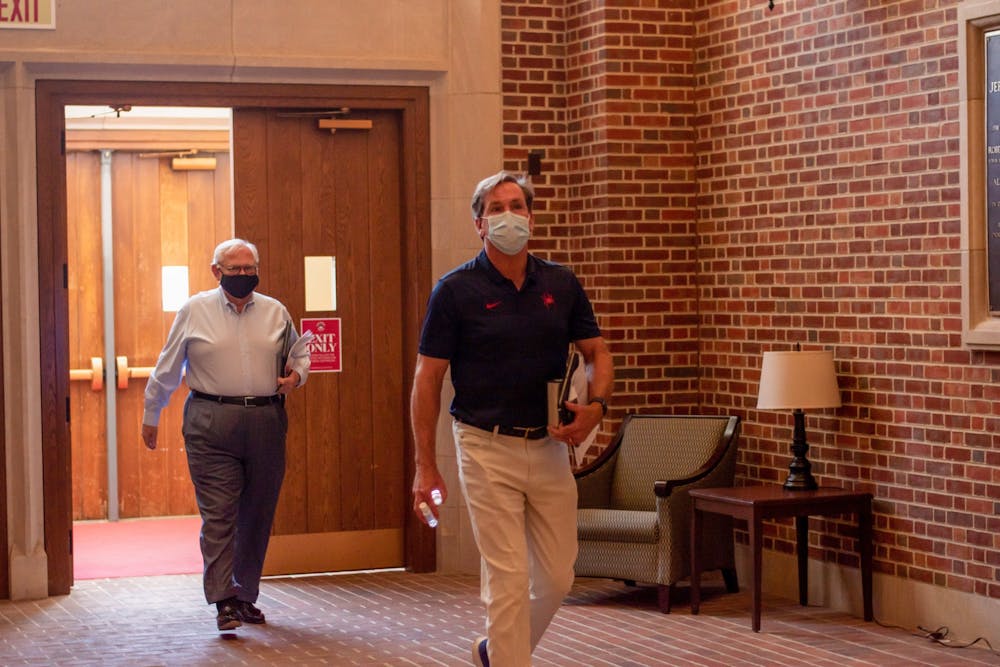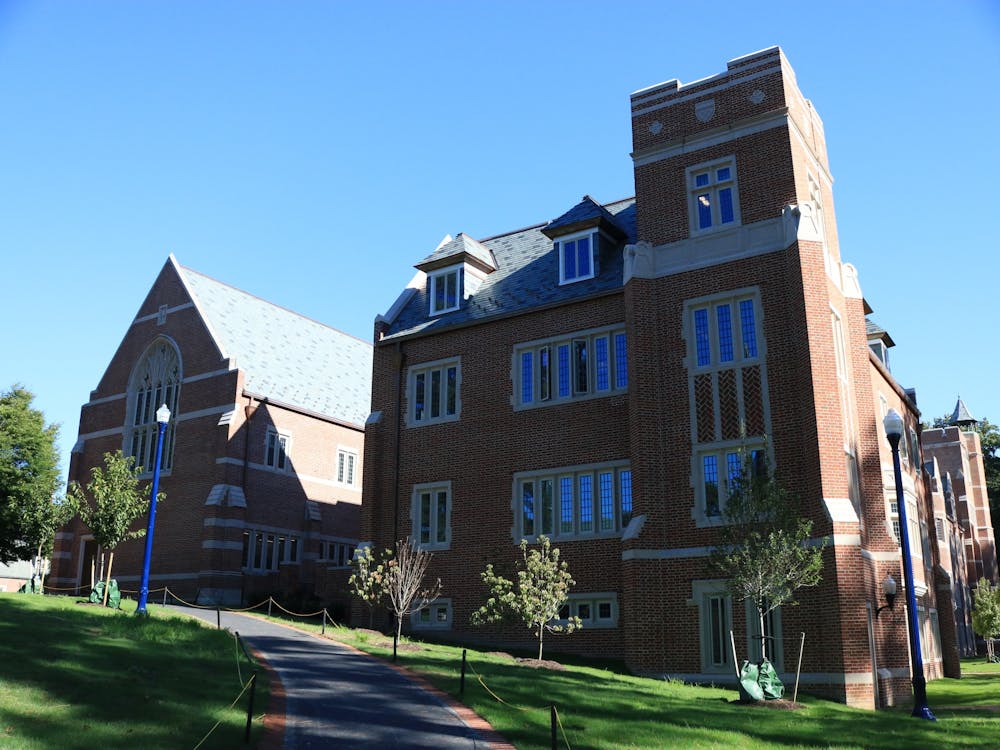While former University of Richmond Rector Paul Queally stepped down from his position earlier this year, he continues to shape UR-related conversations — this time through the UR alumni Facebook group.
Christopher Wiggins, ‘03, wrote a post in the Facebook group on Aug. 17 criticizing alum Kash Patel’s, ’02, after his name was revealed in an affidavit the FBI used in its ongoing criminal investigations of former President Donald Trump’s handling of classified documents. In the same post, Wiggins referenced law school graduate Jenna Ellis, ‘11, who was ordered on Aug. 16 to testify before a special grand jury in Georgia investigating Trump’s efforts to overturn the 2020 presidential election results in Georgia.
Patel served as an adviser to Trump and Ellis was a senior legal adviser for Trump during the 2020 presidential election.
The post sparked a lively political discussion and received several hundred comments from members including Queally, ‘86, Wiggins said.
“Please do not ruin this page by bringing in politics,” Queally wrote in a comment on the post. “Let’s keep it to school-related topics.”
Wiggins responded to the comment by calling out Queally’s own controversies during his time as rector at UR. Wiggins specifically referenced Queally’s opposition to renaming buildings on campus and his reportedly homophobic, sexist and racist comments. Queally then asked Wiggins to stop commenting.
“Christopher — please stop,” Queally wrote. “You are embarrassing yourself.”
Queally did not respond to The Collegian’s request for comment.
The alumni Facebook group administrator, Braxton Bragg, ‘06, removed Wiggins’ post and suspended him from the group after other members reported the post for violating community guidelines, Bragg wrote in a message to The Collegian. Bragg said his decision to suspend Wiggins was not influenced by any comments made on the post.
Over several years, Queally has been a member of the UR alumni Facebook group, but he has not actively participated in discussions — including those about his own controversies — until he commented on the post, Wiggins said.
“This time, when it started to be about the Trump administration, of which he [Queally] is a friend, he made himself known and opposed the conversation, and shortly thereafter, it was shut down,” Wiggins said. “Now to make himself come out publicly in such a way and influence the conversation. It does make me wonder where his intentions lie.”
Though specific comments on Wiggins’ post were reported, Bragg wrote to The Collegian that he was unaware of Queally’s comments because he did not review every response before removing the original post.
Enjoy what you're reading?
Signup for our newsletter
Bragg wrote that the post violated several rules of the Facebook group including those calling for courtesy, respecting privacy, prohibiting hate speech, bullying and doxing. The group also asks that its members only post content specific to UR.
“I would argue that posting about someone’s presence in a search affidavit and calling out the entire UR Facebook alumni community is a form of doxing and invasion of privacy,” Bragg wrote. “Yes, it’s public information, but targeting individuals in that way is very counter to the purpose of the group and maintaining a safe space for people to socialize and network. … The nature of the post is inflammatory and more like gossip than news about UR.”
Group member Lola Franco, ‘86, said that she has refrained from posting to avoid backlash from Queally and his supporters and hopes Queally's pattern of influence both on and offline will end.
“I just wish [Queally] would not have the power he seems to have had,” Franco said. “I would like for him to sort of have his comeuppance.”
After Wiggins shared The Collegian’s story about Patel’s name being revealed in an FBI affidavit, Franco said she shared the story as well.
While Franco said she received positive responses and support for her post, members reported it for being too politically divisive. Bragg then shared a poll in the group on Sept. 8 asking members if The Collegian article and similar content should be allowed in the group. Over 77% of the members voted in support of retaining the article and it stayed.
Bragg acknowledged that the group’s discussions could get heated, especially about politics. But he wrote that as long as discourse remained within the community guidelines, is civil and members feel safe, administrators play a limited role in moderating discussions.
“But for anything that’s reported, one of the most basic questions we can ask is whether it’s something that makes the alumni community or school a better place,” Bragg wrote. “We [administrators] generally take flak from both sides of the aisle and we hope that means that we are being as fair and even-handed as we can.”
Alumni should be allowed to share posts with the group even if they may not reflect positively on some alums, Franco said. Wiggins echoed Franco’s sentiment.
“Realistically U of R has great things and negative things and I can still love the school while also criticizing it,” Wiggins said.
Contact news writer Katie Castellani at katie.castellani@richmond.edu
Support independent student media
You can make a tax-deductible donation by clicking the button below, which takes you to our secure PayPal account. The page is set up to receive contributions in whatever amount you designate. We look forward to using the money we raise to further our mission of providing honest and accurate information to students, faculty, staff, alumni and others in the general public.
Donate Now



